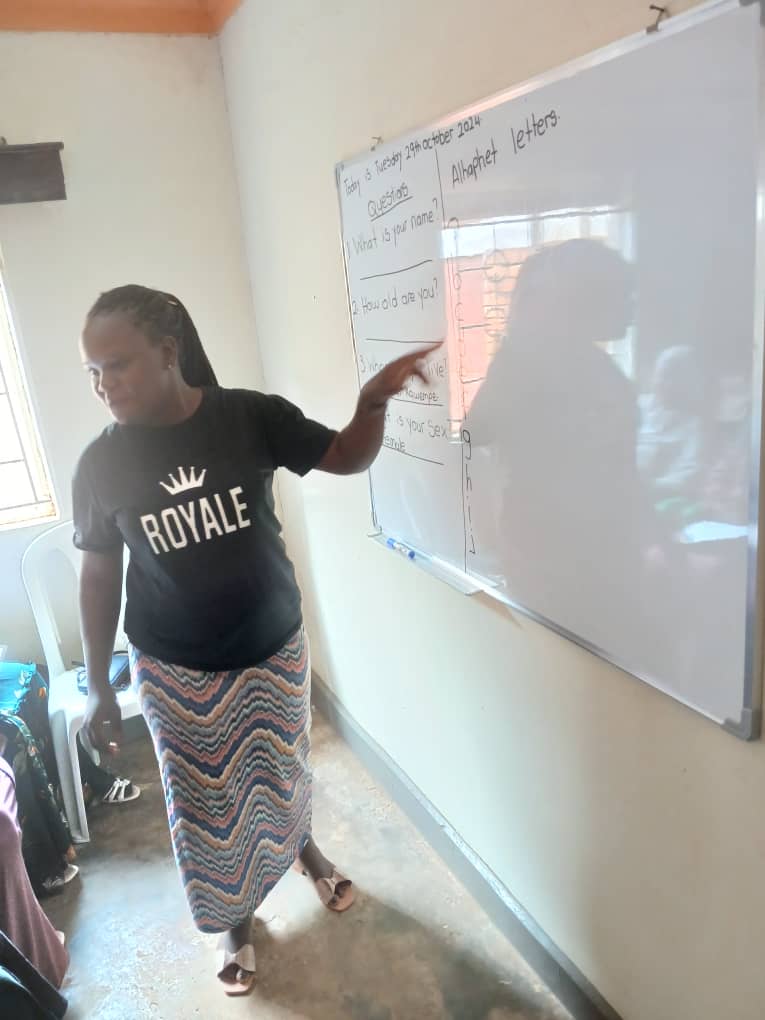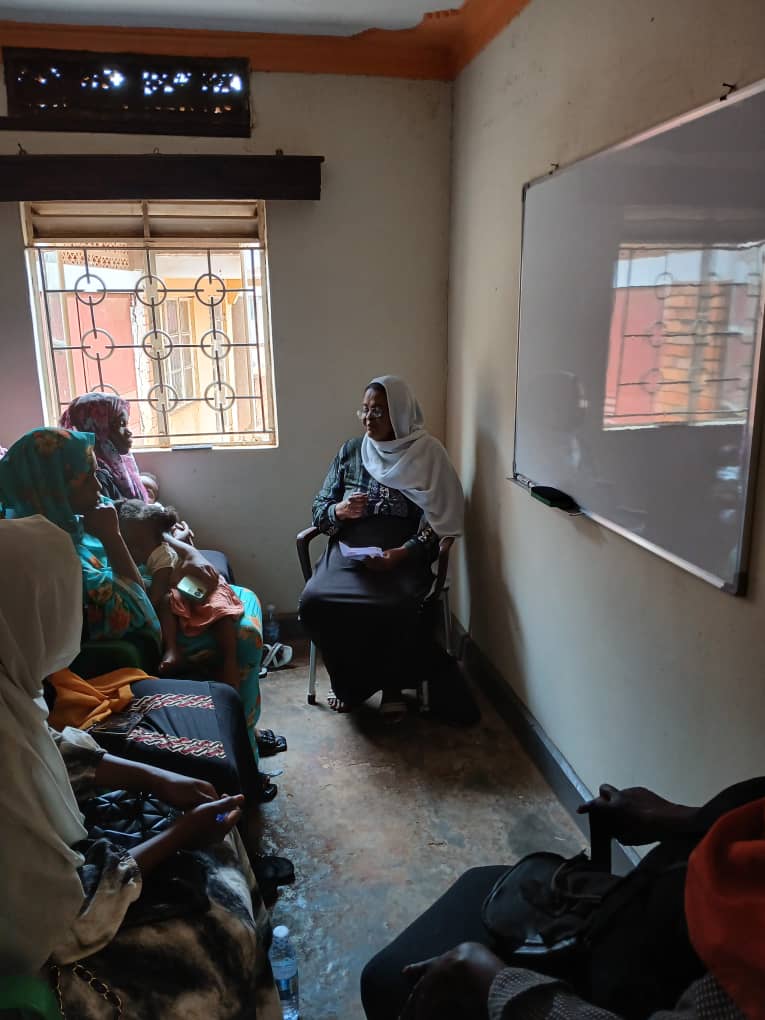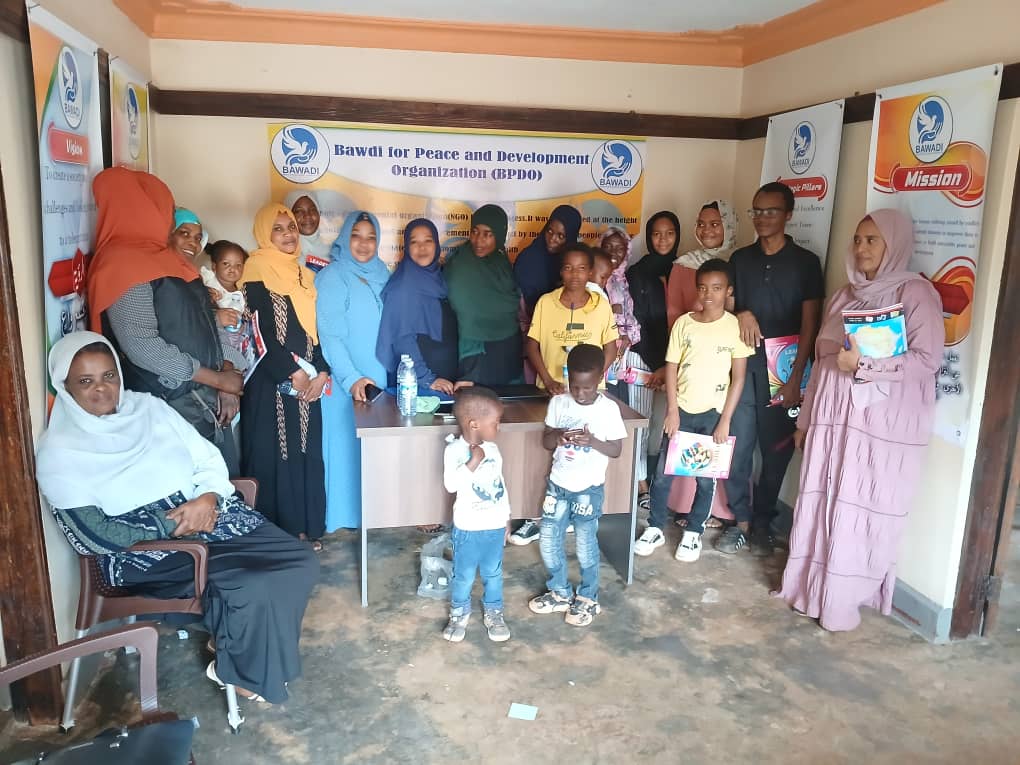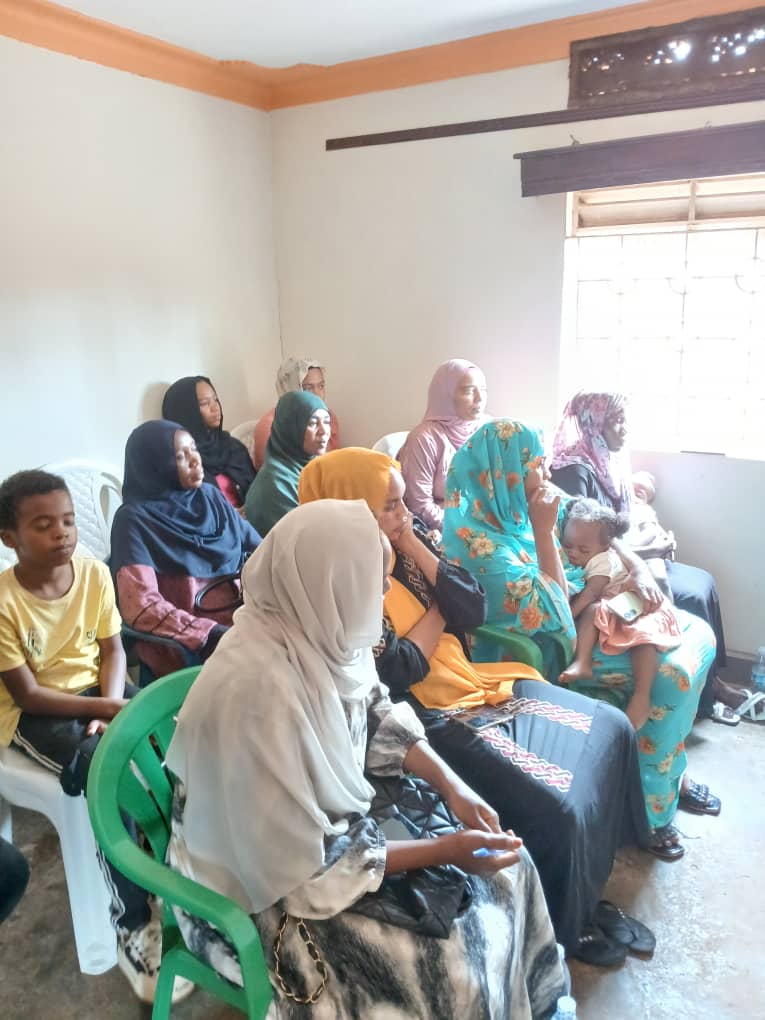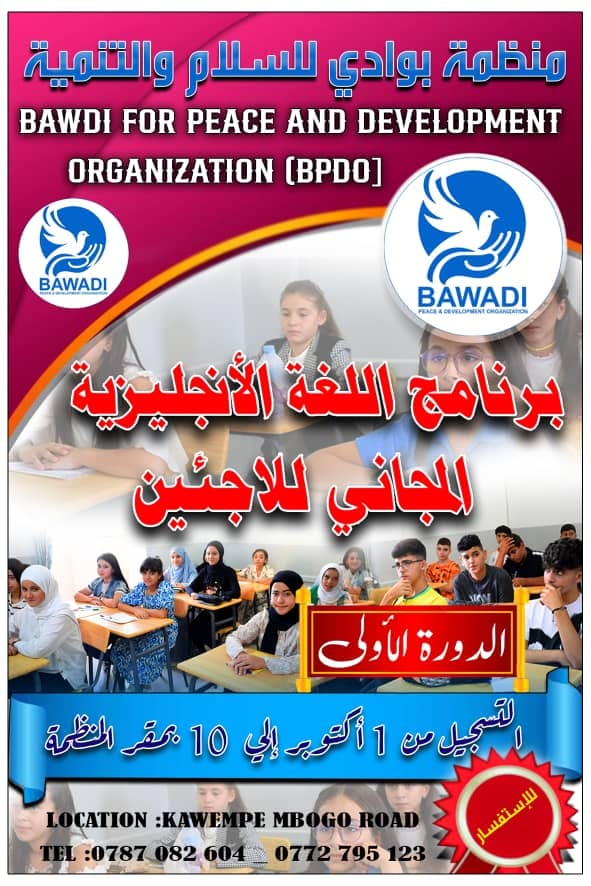28 October 2024
Report on the initiative of the Bawadi Organization for Peace and Development to teach English to refugees.
Introduction
English is a global language that plays a vital role in many aspects of modern life, from education and work to social communication. For refugees, mastering the English language opens new doors to integration into host communities, access to better opportunities, and improve their quality of life.
In this report, we will review the initiative of the Wadi Organization for Peace and Development that aims to teach English to refugees residing in Uganda.
The importance of teaching English to refugees:
-Social integration: Learning English helps refugees communicate with locals, build social relationships, and adapt to the new culture.
-Access to services: Mastering the English language makes it easier for refugees to access basic services such as health care, education, and social services.
-Finding employment opportunities: Increases refugees’ chances of getting suitable jobs, which contributes to achieving financial independence.
-Continuing education: Opens the door for refugees to continue their studies and obtain higher academic qualifications.
Bawadi Organization for Peace and Development played an important role in providing free English language lessons to refugees, in addition to providing psychosocial support through free lessons and workshops with the aim of helping them integrate into the host community and enabling them to acquire some life skills, in addition to helping refugee students apply for scholarships, free training and rehabilitation courses and other fields.
Challenges facing the initiative in teaching English:
– Lack of resources: Many initiatives suffer from a lack of funding and human resources.
– Linguistic and cultural diversity: The level of mother tongue and cultural backgrounds of refugees vary, which represents a challenge in designing educational programs suitable for all.
– Psychological trauma: Many refugees suffer from psychological trauma that may affect their ability to learn.
Conclusion and recommendations:
English language teaching initiatives for refugees are of paramount importance in enabling refugees to integrate into host communities and achieve independence. However, more efforts are needed to increase the effectiveness and scope of these initiatives. Recommendations include:
– Increase funding: More funding should be provided for initiatives that aim to teach English to refugees.
– Collaboration between different stakeholders: Cooperation between governments, NGOs, and the private sector should be enhanced to provide comprehensive educational services to refugees.
– Develop curricula: Curricula should be developed that are appropriate to the different needs of refugees and take into account the diversity of their cultural backgrounds.
– Provide psychosocial support: Psychosocial support should be provided to refugees to help them overcome psychological trauma and improve their ability to learn.
In conclusion, it can be said that teaching English to refugees is an investment in the future, as it contributes to building societies capable of overcoming challenges.
